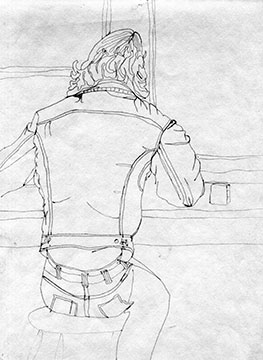It’s like when someone on TV interviews a one hundred-year-old woman. They always ask her the same thing: What’s your secret? We’re all worried about the future; we want to know what she’s done to live so long. And she never says, “Oh, I don’t know. Don’t ask me. Luck, probably. Luck or lucky genetics or something.” Instead, she describes, as though it has magical properties, her daily regimen. And this regimen usually involves something bizarre like eating two pounds of shredded wheat soaked in bacon grease for breakfast, and then skipping lunch and dinner, instead fortifying herself with small beer-and-corn-syrup smoothies throughout the day. And we in the audience take our mental notes: huge amounts of fat, salt, carbs, and alcohol. Long life. Got it. Never mind that her longevity probably has nothing to do with her daily routine—which might even kill those of us who try it for ourselves—still we’re tempted to do what she does, just to see if it’ll help us survive.
Lately, I’ve been wondering if this is how it works whenever we take advice from successful writers. As a group, we’re hungry for advice—writers often prefer hearing about writing to actually doing it—so a lot of us snap to attention whenever somebody we admire drops some wisdom. But what if these admired writers are the same as the one hundred-year-old woman? What if their writing success (both the quality of the writing and the success in publishing) is the result not of their conscious writing strategies but of luck, or rare genius, or mysterious things that they aren’t even aware of? What if the advice is basically useless or even dangerous—so much bacon grease—and the only reason we never get to hear about its uselessness is that the many not-famous people who try it out (and fail) end up remaining not famous and so are not in a position to dole out writing guidance?

